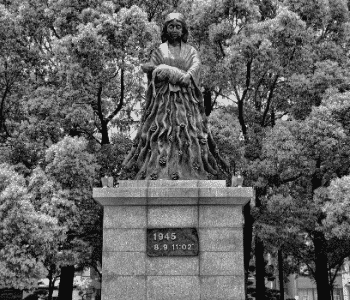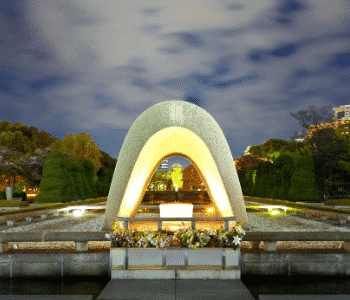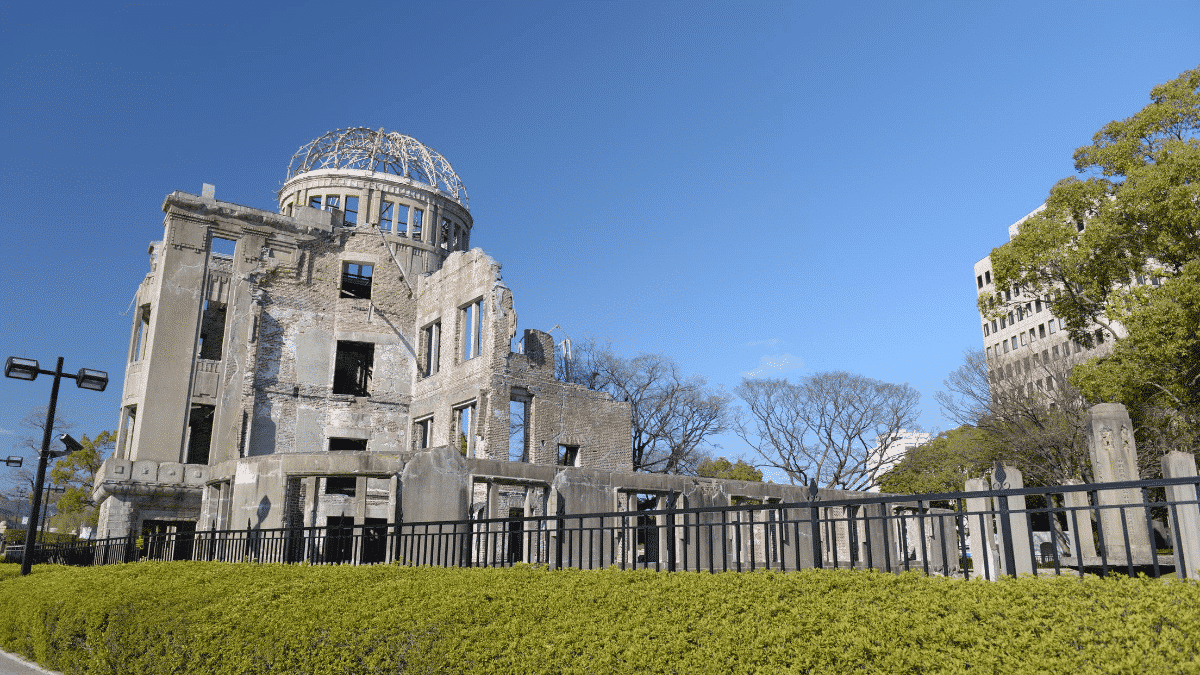Two Atomic Bomb Memorials, One Speech
Why originality matters...

During the closing days of World War 2, The United States dropped two atomic bombs on Japan. The first detonated on August 6, 1945 over the city of Hiroshima, the second detonated over Nagasaki on August 9, just three days later.
The bombs represented a major turning point in history. Historians continue to debate the bombs’ role in ending World War 2, bringing about the cold war and shaping modern history. However, for the residents of Hiroshima and Nagasaki, the impacts were much more direct.
Though exact numbers are unknown, best estimates say that between 129,000-226,000 people were killed in the two blasts. Countless others were injured, and millions had their lives forever altered by the bombings.
Recently, both cities held ceremonies to mark the 75th anniversaries of the respective bombings. Japanese Prime Minister Shinzo Abe was on hand at both ceremonies to deliver a speech.
However, those speeches drew a great deal of controversy not just for their lack of any direct action on nuclear disarmament, a subject many of the survivors of the bombings are passionate about, but for being nearly identical.
According of analyses of the two speeches, they were more than 90% identical, with only names and a section about how the two cities rebuilt being different. This has angered many of the survivors of the bombing, known as hibakusha in Japan.
One was quoted in The Guardian as saying, “He talks gibberish and leaves, as if to say, ‘There you go. Goodbye.’ He just changed the word ‘Hiroshima’ to ‘Nagasaki.’ He’s looking down on A-bomb survivors.”
It’s easy to see why many feel that way. If you want to prove that you are taking an issue seriously, shortcuts are not the way to go. While it’s understandable that Prime Minister Abe would want to use two similar speeches for two similar events, doing so undermines the very message that he was trying to send.
Understanding the Allegations

The allegations aren’t plagiarism in any traditional sense. Prime Minister Abe is not accused of plagiarizing his words from some third party but that he simply gave virtually identical speeches to two groups of survivors mere days apart.
Looking at the English translations (Hiroshima Speech and Nagasaki Speech), it’s clear that the two speeches are nearly the same. A quick analysis via CopyScape reveals that the two speeches, were nearly identical. Of the 617 words in the Nagasaki speech, some 558 were verbatim from the Hiroshima speech, including a 370+ word block that was completely identical.
The only changes were swapping the names of the cities and a brief section about the rebuilding of the two towns in the aftermath.
However, this isn’t really a story about the copying. The speeches are pretty clearly almost identical and there’s not much room for debate.
Instead, the question is whether Prime Minister Abe did anything unethical by reusing the speech and, to answer that, we must look at a much deeper issue.
The Controversy Over Self-Plagiarism/Recycling
Self-plagiarism, sometimes referred to as recycling, is the practice of reusing work you previously created in a new situation without expressly acknowledging that it’s old content.
There is a huge debate over the ethics of self-plagiarism with many feeling that it is almost never wrong and others viewing it as a scourge to be eliminated.
The truth is, as with most things, more nuanced. There are times where such self-duplication is perfectly acceptable. Lawyers routinely use parts of previous pleadings; politicians repeat stump speeches and other content is repeated without issue when the novelty of said content is not important.
But even if self-plagiarism isn’t unethical in the situation, it often shows a significant lack of effort. If one can find novel words and ideas to for a situation and choose not to, it indicates that it wasn’t important enough for them to bother doing so.
Though it was not a case of self-plagiarism, it’s similar to what happened when the University of Lincoln Students’ Union CEO plagiarized another university’s apology for racial injustice. The apology, which was spurred by the Black Lives Matter movement, drew heavy criticism for not being original and led to calls for the CEO to resign.
Though the plagiarism itself was bad, it was made worse by the fact it made the apology and the promised reforms seem insincere.
In Prime Minister Abe’s case, the recycled content may not be unethical from a plagiarism standpoint, but it makes it appear that he is not taking the anniversaries or the concerns of the survivors seriously.
That, in turn, is the reason for the backlash and why Prime Minister Abe’s intended statements are falling flat.
Bottom Line
To call the atomic bombings of Hiroshima and Nagasaki a serious topic is a grotesque understatement. Very few moments in history carry this kind of gravity both in terms of the loss of life and the historical impact.
That gravity and significance is part of what makes this such a difficult story. It would have been easy for Prime Minister Abe to write two separate speeches. The topic of the atomic bombings has more than enough depth to warrant it and the effort would not have been that great.
This post, for example, is about 1,000 words long and that makes it more than 2/3 longer than either speech.
While this doesn’t require anywhere near the care or diplomacy of a political speech, it shows that we’re not talking about a massive work that would have been an undue burden on the Prime Minister or his staff.
In short, if Prime Minister Abe wanted his sentiments to be given their full weight, he should have started by making sure that his words were original at each location. If such an important speech was not worth him writing anew, one can only take his sentiments so seriously.
Want to Reuse or Republish this Content?
If you want to feature this article in your site, classroom or elsewhere, just let us know! We usually grant permission within 24 hours.
